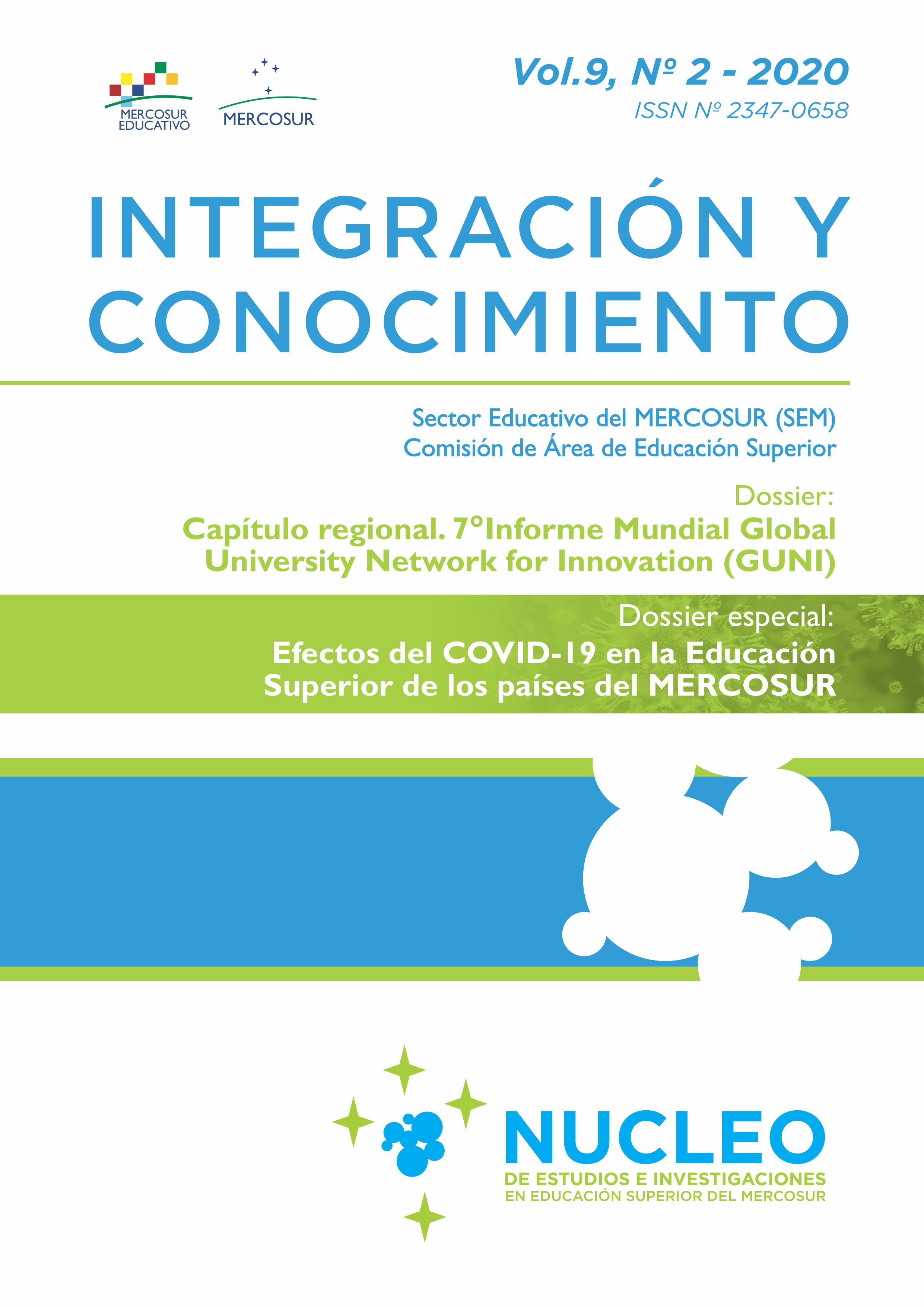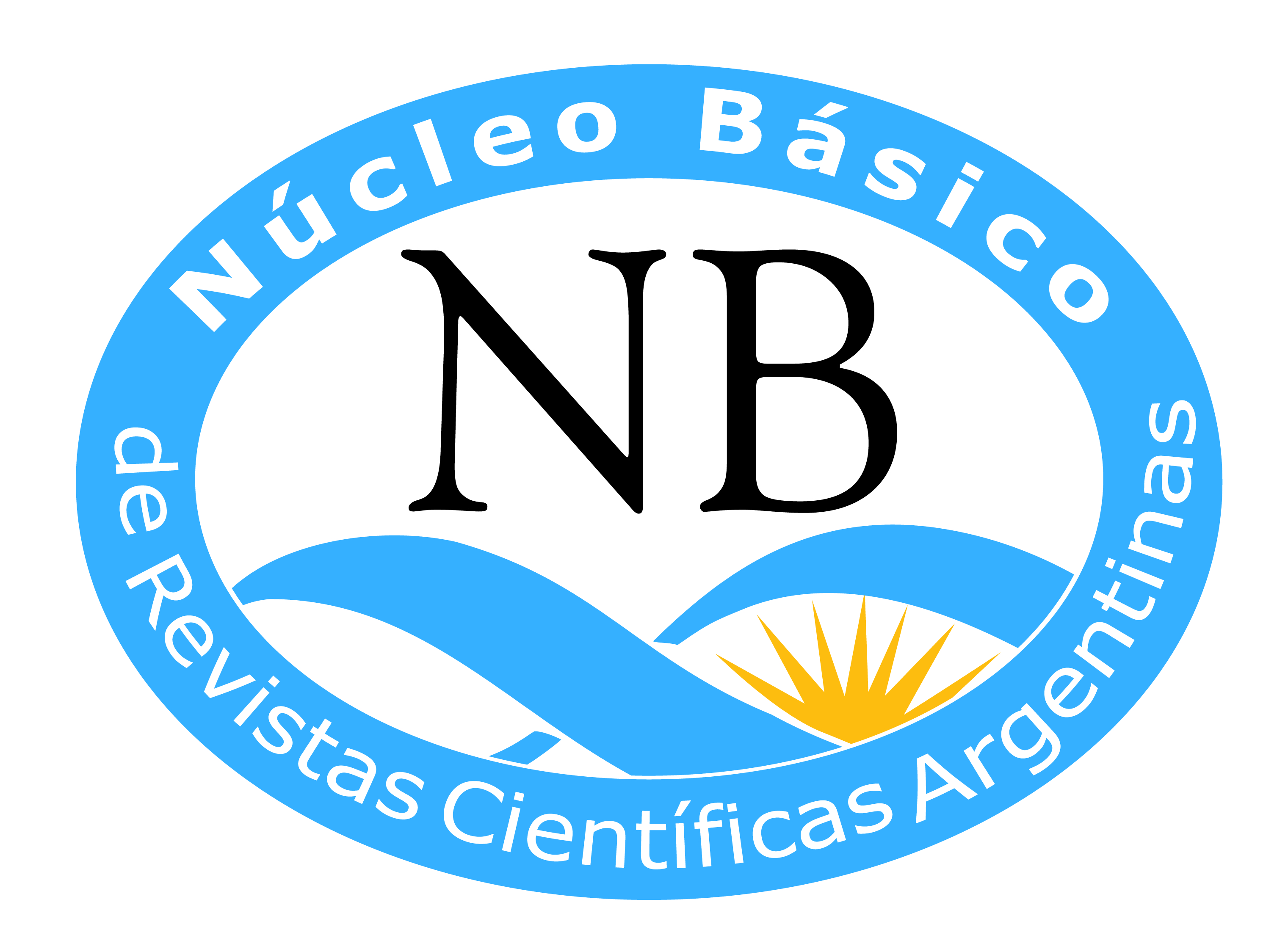Scientific profile of Latin America and the Caribbean at the beginning of the 21st century
DOI:
https://doi.org/10.61203/2347-0658.v9.n2.29541Keywords:
Science evaluation; Scientometrics; Scientific profile; Scientific specialization; Latin America and the Caribbean.Abstract
Latin American and Caribbean science experienced a favorable time in the early twenty-first century, marked by increased investment, human resources training and scientific production. The new configurations require new insights into regional science, the patterns of specialization and the countries and region scientific profiles. This paper analyzes the Latin America and the Caribbean scientific profile and specialization patterns in regional and global science between 2003 and 2014, based on input and output data. This research consists a scientometric study at the macro level, based on multiple indicators and complementary data sources. The corpus is formed by 643,222 articles and 8,231,334 citations of Web of Science and 274,335 articles and 513,903 citations of SciELO Citation Index, as well as by input data on regional science. Results show that efforts of the region are not yet reflected on a greater impact of citations. Specialization patterns show the region's adherence to paradigmatic bio-environmental and western models, with wide variability between countries. The bio-environmental model is predominant and reinforces the competences of the region, especially in Agrarian and Natural Sciences, while the Western model indicates the growing specialization in Biomedicine and Clinical Medicine. It is concluded that regional and global science of Latin America and the Caribbean complement each other, follow similar paradigmatic models and contribute to a broader view of regional science.
Downloads
References
Aguado Lopez, E. et al. (2014). Ibero-america in mainstream science (Thomson Reuters/Scopus): a framented region. Interciencia, 39(8), 570-579.
Collazo-Reyes, F. (2014). Growth of the number of indexed journals of Latin America and the Caribbean: the effect on the impact of each country. Scientometrics, 98(1), 197-209.
Frame, J. D. (1977). Mainstream research in Latin America and the Caribbean. Interciencia, 2(3), 143-147.
Glänzel, W. (2003). Bibliometric as a research field. [S. l.] Course Handouts.
Glänzel, W., Leta, J. and Thijs, B. (2006). Science in Brazil. Part 1: a macro-level comparative study. Scientometrics, 67(1), 67-86.
Henríquez Guajardo, P. (Coord.) (2018). El papel estratégico de la educación superior en el desarrollo sostenible de América Latina y el Caribe. Caracas: UNESCO-IESALC.
Krauskopf, M. et al. (1995). A citationist perspective on science in Latin America and the Caribbean, 1981-1993. Scientometrics, 34(1), 3-25.
Leite, D., Caregnato, C., and Miorando, B. (2018). Efeitos multiplicadores das redes de colaboração em pesquisa. Avaliação: Revista da Avaliação da Educação Superior, 23(1), 263-286.
Leta, J., Thijs, B. and Glänzel, W. (2013). A macro-level study of science in Brazil: seven years later. Encontros Bibli, 18(36), 51-66.
OECD (Organisation for Economic Co-Operation and Development). (2007). Revised Field of Science and Technology (FOS) classification in the Frascati Manual. Paris: OECD.
European Comission. (1997). REIST-2: the European Report on Science and Technology Indicators. Brussels: European Commission.
RICYT (Red de Indicadores de Ciencia y Tecnología Iberoamericana e Interamericana). (2017). El Estado de la Ciencia 2017. Buenos Aires: RICYT.
Santin, D. M. (2019) Ciência mainstream e periférica da América Latina e Caribe: configurações e padrões de especialização (tesis doctoral). Porto Alegre: Universidade Federal do Rio Grande do Sul.
Schulz, P. A. and Manganote, E. J. T. (2012). Revisiting country research profiles: learning about the scientific cultures. Scientometrics, 93(2), 517-531.
Tuzi, F. (2005). The scientific specialisation of the Italian regions. Scientometrics, 62(1), 87-111.
United Nations, Statistics Division. (2014). Standard Country or Area Codes for Statistics Use. Recuperado de https://unstats.un.org/unsd/methodology/m49
Velho, L. (2004). Science and technology in Latin America and the Caribbean: an overview. Maastricht: United Nations University.
Vessuri, H., Guédon, J.-C., and Cetto, A. M. (2014) .Excellence or quality? Impact of the current competition regime on science and scientific publishing in Latin America and its implications for development. Current Sociology, 62(5), pp. 647-665.
Downloads
Published
How to Cite
Issue
Section
License

This work is licensed under a Creative Commons Attribution 4.0 International License.
Authors who have publications with this journal accept the following terms:
a. Authors shall retain their copyright and guarantee the journal the right of first publication of their work, which shall simultaneously be subject to the Creative Commons License of Recognition which allows third parties to share the work as long as its author is indicated and its first publication is this journal.
b. Authors may adopt other non-exclusive licensing agreements for the distribution of the published version of the work (e.g., depositing it in an institutional telematic archive or publishing it in a monographic volume) provided that the initial publication in this journal is indicated.
c. Authors are allowed and encouraged to disseminate their work via the Internet (e.g. in institutional telematic archives or on their website) after publication of the article, which may lead to interesting exchanges and increased citations of the published work. (See The Effect of Open Access).



